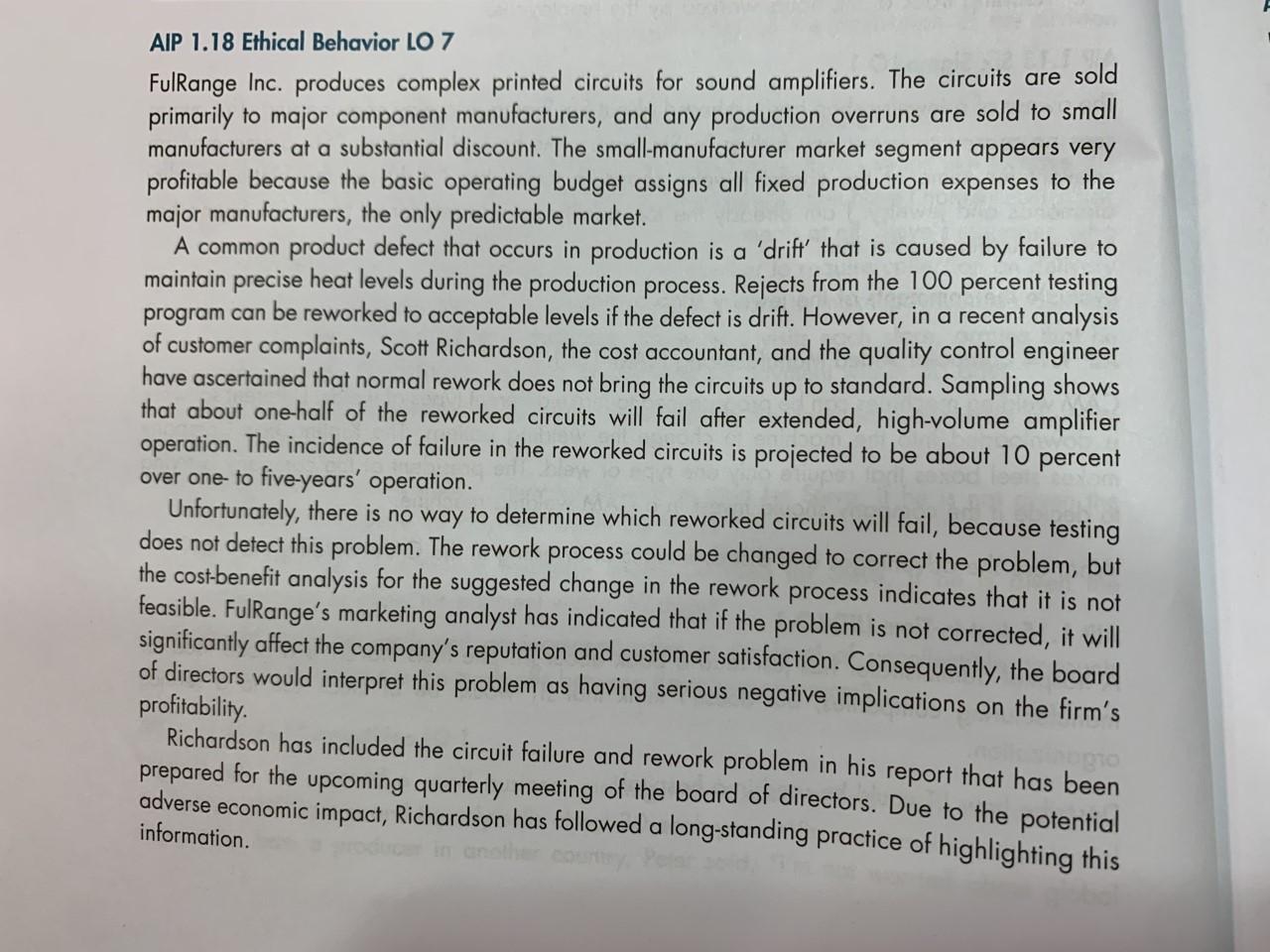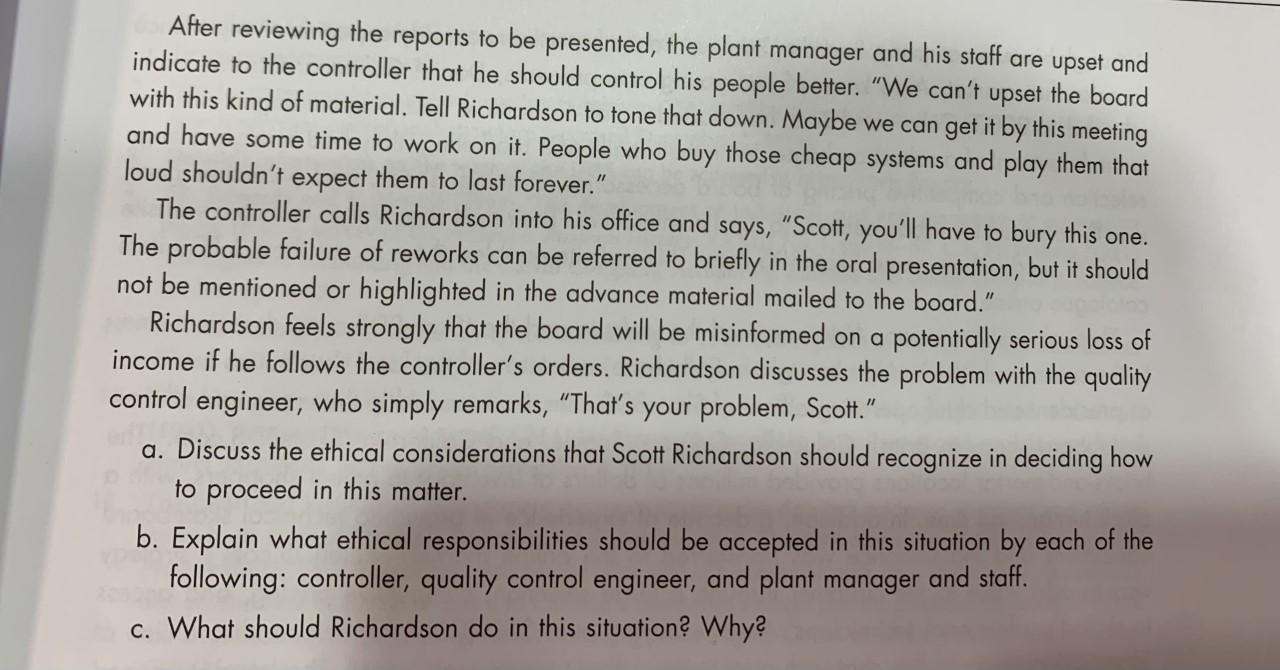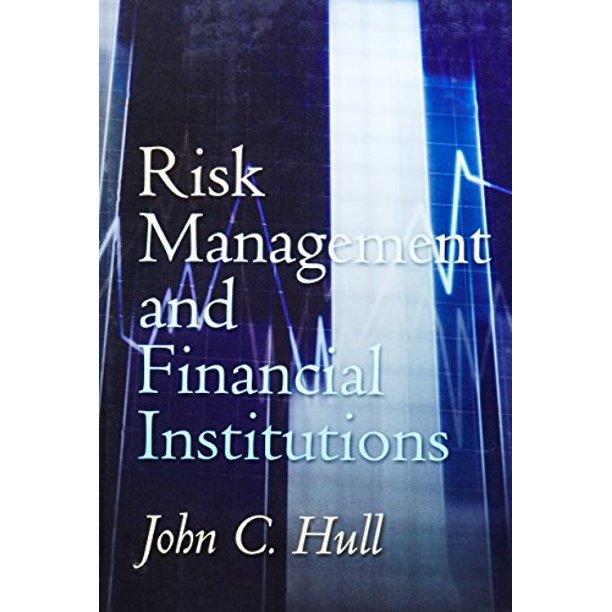

AIP 1.18 Ethical Behavior LO 7 FulRange Inc. produces complex printed circuits for sound amplifiers. The circuits are sold primarily to major component manufacturers, and any production overruns are sold to small manufacturers at a substantial discount. The small-manufacturer market segment appears very profitable because the basic operating budget assigns all fixed production expenses to the major manufacturers, the only predictable market. A common product defect that occurs in production is a 'drift that is caused by failure to maintain precise heat levels during the production process. Rejects from the 100 percent testing program can be reworked to acceptable levels if the defect is drift. However, in a recent analysis of customer complaints, Scott Richardson, the cost accountant, and the quality control engineer have ascertained that normal rework does not bring the circuits up to standard. Sampling shows that about one-half of the reworked circuits will fail after extended, high-volume amplifier operation. The incidence of failure in the reworked circuits is projected to be about 10 percent over one to five-years' operation. Unfortunately, there is no way to determine which reworked circuits will fail, because testing does not detect this problem. The rework process could be changed to correct the problem, but the cost-benefit analysis for the suggested change in the rework process indicates that it is not feasible. FulRange's marketing analyst has indicated that if the problem is not corrected, it will significantly affect the company's reputation and customer satisfaction. Consequently, the board of directors would interpret this problem as having serious negative implications on the firm's profitability. Richardson has included the circuit failure and rework problem in his report that has been prepared for the upcoming quarterly meeting of the board of directors. Due to the potential adverse economic impact, Richardson has followed a long-standing practice of highlighting this information. After reviewing the reports to be presented, the plant manager and his staff are upset and indicate to the controller that he should control his people better. "We can't upset the board with this kind of material. Tell Richardson to tone that down. Maybe we can get it by this meeting and have some time to work on it. People who buy those cheap systems and play them that loud shouldn't expect them to last forever." The controller calls Richardson into his office and says, "Scott, you'll have to bury this one. The probable failure of reworks can be referred to briefly in the oral presentation, but it should not be mentioned or highlighted in the advance material mailed to the board." Richardson feels strongly that the board will be misinformed on a potentially serious loss of income if he follows the controller's orders. Richardson discusses the problem with the quality control engineer, who simply remarks, "That's your problem, Scott." a. Discuss the ethical considerations that Scott Richardson should recognize in deciding how to proceed in this matter. b. Explain what ethical responsibilities should be accepted in this situation by each of the following: controller, quality control engineer, and plant manager and staff. c. What should Richardson do in this situation? Why? AIP 1.18 Ethical Behavior LO 7 FulRange Inc. produces complex printed circuits for sound amplifiers. The circuits are sold primarily to major component manufacturers, and any production overruns are sold to small manufacturers at a substantial discount. The small-manufacturer market segment appears very profitable because the basic operating budget assigns all fixed production expenses to the major manufacturers, the only predictable market. A common product defect that occurs in production is a 'drift that is caused by failure to maintain precise heat levels during the production process. Rejects from the 100 percent testing program can be reworked to acceptable levels if the defect is drift. However, in a recent analysis of customer complaints, Scott Richardson, the cost accountant, and the quality control engineer have ascertained that normal rework does not bring the circuits up to standard. Sampling shows that about one-half of the reworked circuits will fail after extended, high-volume amplifier operation. The incidence of failure in the reworked circuits is projected to be about 10 percent over one to five-years' operation. Unfortunately, there is no way to determine which reworked circuits will fail, because testing does not detect this problem. The rework process could be changed to correct the problem, but the cost-benefit analysis for the suggested change in the rework process indicates that it is not feasible. FulRange's marketing analyst has indicated that if the problem is not corrected, it will significantly affect the company's reputation and customer satisfaction. Consequently, the board of directors would interpret this problem as having serious negative implications on the firm's profitability. Richardson has included the circuit failure and rework problem in his report that has been prepared for the upcoming quarterly meeting of the board of directors. Due to the potential adverse economic impact, Richardson has followed a long-standing practice of highlighting this information. After reviewing the reports to be presented, the plant manager and his staff are upset and indicate to the controller that he should control his people better. "We can't upset the board with this kind of material. Tell Richardson to tone that down. Maybe we can get it by this meeting and have some time to work on it. People who buy those cheap systems and play them that loud shouldn't expect them to last forever." The controller calls Richardson into his office and says, "Scott, you'll have to bury this one. The probable failure of reworks can be referred to briefly in the oral presentation, but it should not be mentioned or highlighted in the advance material mailed to the board." Richardson feels strongly that the board will be misinformed on a potentially serious loss of income if he follows the controller's orders. Richardson discusses the problem with the quality control engineer, who simply remarks, "That's your problem, Scott." a. Discuss the ethical considerations that Scott Richardson should recognize in deciding how to proceed in this matter. b. Explain what ethical responsibilities should be accepted in this situation by each of the following: controller, quality control engineer, and plant manager and staff. c. What should Richardson do in this situation? Why








